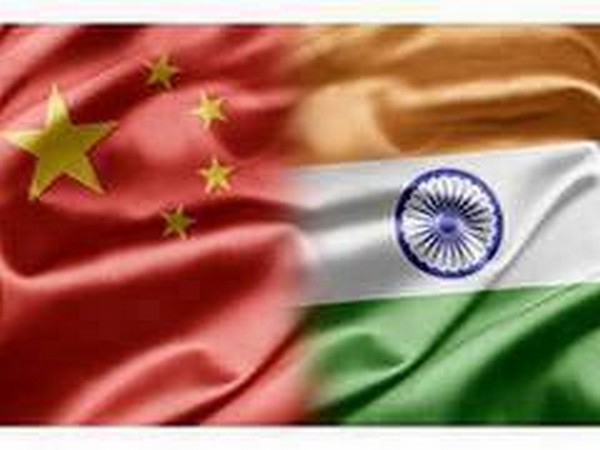The world has recently focused on two major events, one is the escalating conflict between Russia and Ukraine, another is the 20th National Congress of the Communist Party of China (CPC), which will be on from 16 to 22 October 2022. Over the past decade, under the leadership of the Central Committee of the CPC, with President Xi Jinping at its core, China has not only lifted nearly 600 million people out of poverty but also elevated China’s stature in the world. It is virtually the second superpower of the world behind the United States. Therefore, because of the declining geopolitical environment and the continuing pressure of economic recession, the new leadership of the CPC and its new governance policies have attracted the whole world’s attention.
Although it’s not yet clear whether China’s foreign policy will undergo major adjustments after the 20th National Congress, considering the complex and turbulent status quo of the international situation, the new CPC leadership will in all probability make mention of making greater contribution to the world’s stability, peaceful prosperity and economic recovery. The entire world and specially the developing countries, are expecting positive outcomes from China’s strong leadership after the 20th National Congress. Therefore, it’s time for us to think about the future of India-China relations.
There is no doubt that given the global influence of India and China (the world’s only two major developing and most populous countries, and the world’s most important economic engines with broad prospects), their bilateral relations are of great significance—both bilaterally, regionally and globally. Regrettably, over the past two years, their bilateral relations have suffered the biggest setback since the 1962 war over the border issue, during which even the economic and trade cooperation and people-to-people exchanges have been severely affected. However, since this year, they have shown some positive momentum. For example, the two countries’ troops have pulled back from another disputed border area, which is expected to bring peace and tranquility in the border areas. People-to-people exchanges have also been gradually resumed. The much-discussed issue of the return of Indian students to China to restart their courses has been resolved.
The biggest sticking point in the bilateral relations remains the border issue. After the Galwan conflict, the most severe difference between the two countries is that China would like to put the border dispute crisis on the back-burner and normalize relations with India; while India has put forward as prerequisite to normalizing bilateral relations stability at the border. After 16 rounds of Corps Commander-level talks, the border crisis is likely to shift from emergency response to routine control. However, with both sides maintaining heavy military presence and accelerating infrastructure development along the border areas, the remaining disputed Patrolling Points can easily lead to new clashes at any time. Therefore, an India China formal (or informal) summit
Now both sides have taken the first step in the field of people-to-people exchanges, which are quite important for improving the understanding of each other’s concerns and addressing them. Both sides should be prepared to fully recommence the exchange programs as the Covid-19 pandemic gets over. In addition, economic and trade cooperation between the two sides, which are the engines of world economic growth, is particularly important amid the tense geopolitical situation and pessimistic expectations of global economic recession. Despite the combined impact of declining bilateral relations and the Covid-19 pandemic, economic and trade cooperation between the two sides has remained at a high level in recent years, which shows that this has strong resilience and great potential. However, the nagging problems such as trade imbalance, trade barriers and discriminatory business environment, need to be resolved with determination by both sides. Otherwise, the two countries will not be able to achieve win-win results at a higher level and in a wider range.
Except these bilateral issues, there are many areas of cooperation, both multilaterally and globally, between India and China which require peaceful relations to resume. They should join hands to bring more development opportunities to all countries, especially those emerging and developing economies. There are areas already existing which need to be given a boost by both countries. Some important areas of cooperation being on climate change, non-renewable energy such as solar and wind, pharmaceuticals, infrastructure development, global governance structural reforms, maritime trade regulatory reforms, addressing together the concerns of smaller and economically weaker countries, response to HADR situations particularly in Asia, pushing forward the establishment of rules in emerging fields such as data security, bioengineering and artificial intelligence, etc.
These areas require better bilateral relations and that is possible by addressing areas of core concerns by both countries peacefully. Now both sides shoulder the historical mission of development at home, and carry the common expectation of safeguarding the interests of developing countries and promoting the development of a multi-polar world outside. India and China both stand to gain from cooperation and lose from confrontation. Cooperation can achieve great goals that benefit the two countries and the world, while confrontation undermines the interests of the two countries and also the international community. There are multiple expectations on both sides, the trigger of which must emerge post the deliberations at CPC Party Congress. Two countries should take a comprehensive consideration on bilateral relations and get back on the right track, exert joint efforts to meet each other halfway, with a view to safeguarding the world’s peace, stability and development.
Vice Admiral Shekhar Sinha (Retd) is an Indian Navy veteran. Dr Xiao Jianmei is Associate Professor of China Center for South Asian Studies, Sichuan University.
China-India ties post 20th National Congress of CPC
इस शब्द का अर्थ जानिये
- Advertisement -

